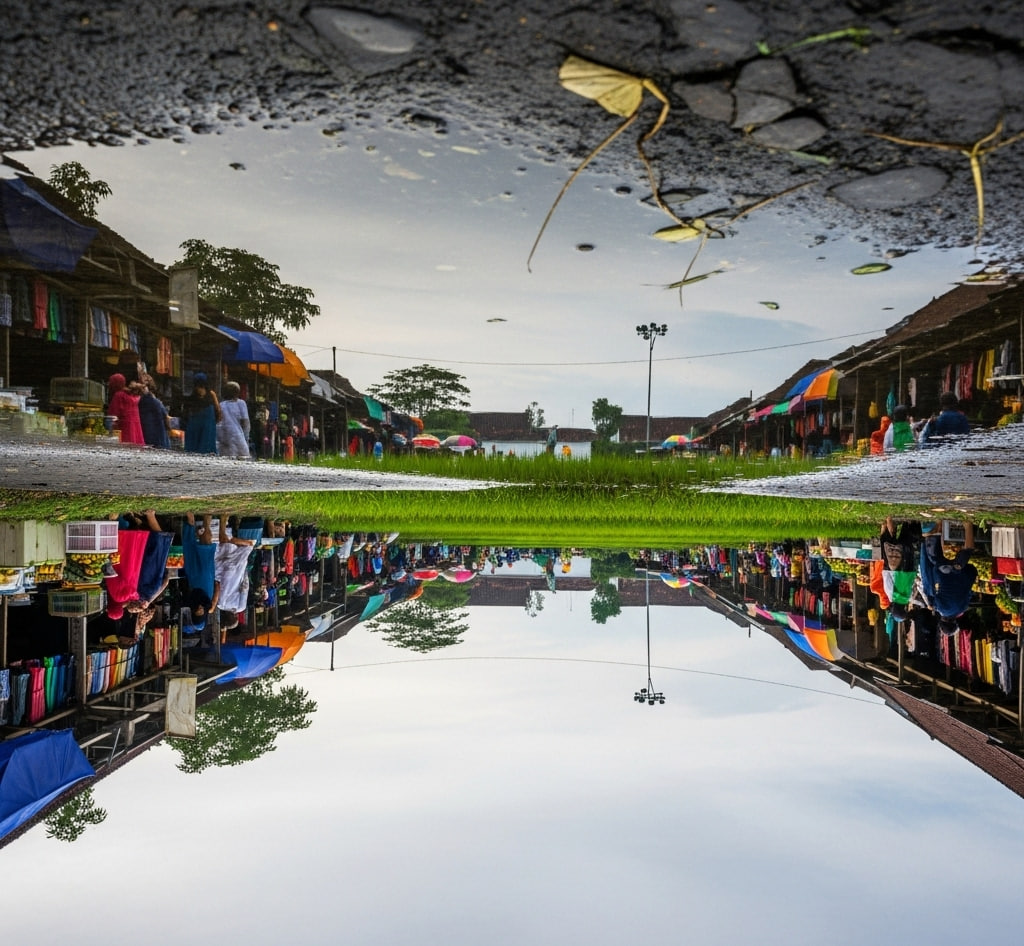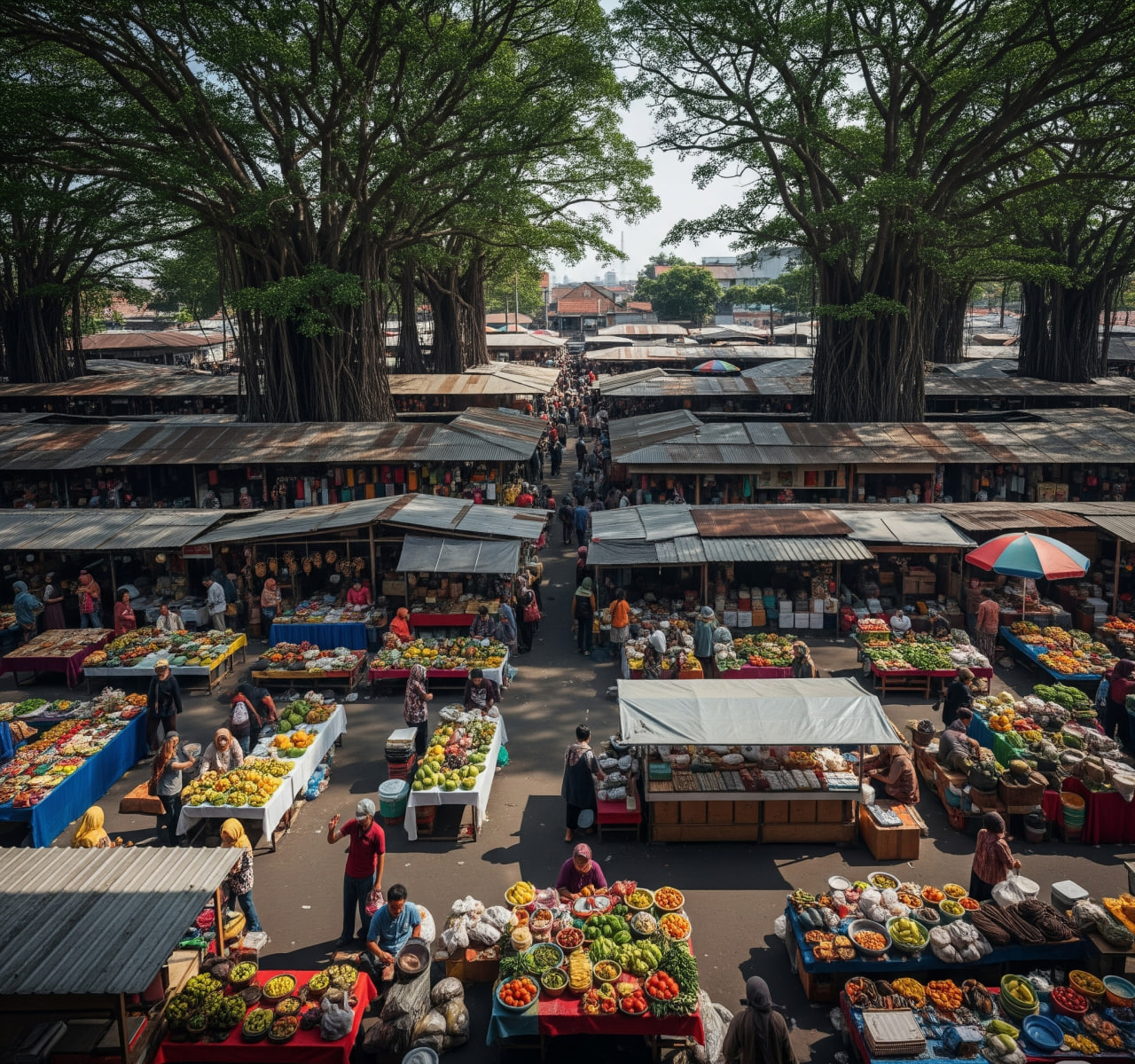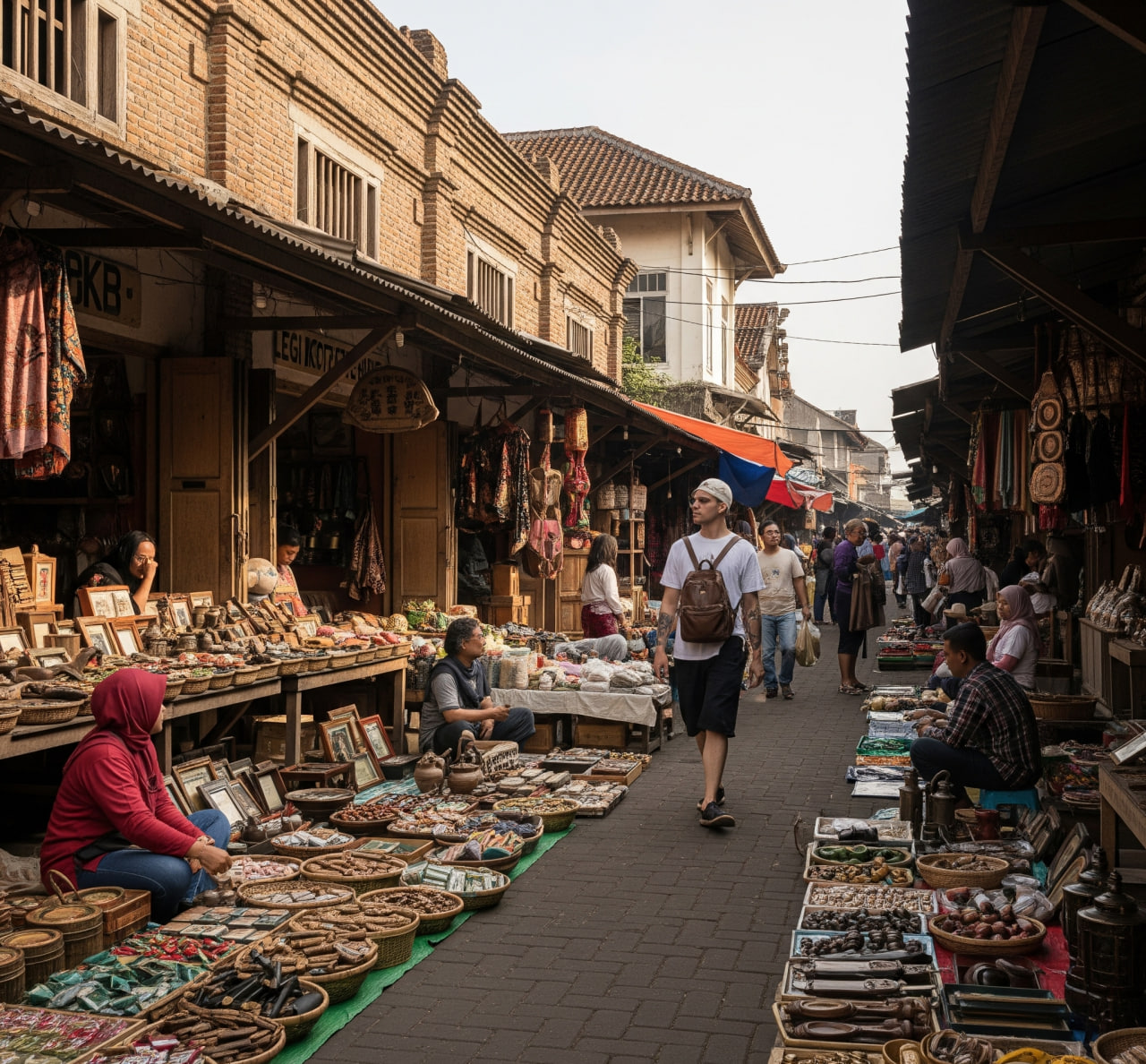News
Kembul Bujono: A Shared Meal After Nyadran, Jogja’s Way of Strengthening Bonds
Jogja has a unique way of warming hearts, especially before Ramadan or during the month of Ruwah (Sha'ban). One such tradition is Kembul Bujono. Imagine this: after a communal Nyadran (pilgrimage to ancestral graves), families and neighbors sit together on woven mats, share simple home-cooked meals, and enjoy each other’s company. While Nyadran is well-known, it’s Kembul Bujono that adds a special touch to the moment. This tradition is not just about filling the stomach—it’s about strengthening relationships and fostering a sense of togetherness.
Nyadran is typically held before Ramadan, during the month of Sya’ban or Ruwah, when people in Jogja visit ancestral graves, clean the burial sites, and pray together for forgiveness and blessings. After that comes Kembul Bujono, a communal meal that serves as a heartfelt closing. The name itself has a deep meaning—"Kembul" means eating together, while "Bujono" derives from "bujana", meaning a feast or offering. It’s like a small thanksgiving celebration after the spiritual ritual, filled with gratitude and unity. While every village has its own way of holding this tradition, the essence remains the same: bringing people closer together.
The execution is simple yet meaningful. After visiting the graves, people bring food from home—nasi gudeg, ayam ingkung, or simple traditional cakes like apem. Mats are spread out in the mosque courtyard, front yards, or even near the graves themselves. Everyone sits together, from young children to the elderly, chatting casually while enjoying their meal. Sometimes, people bring kenduri offerings, such as nasi ambeng arranged on a large bamboo tray and then shared among neighbors. The atmosphere is lively yet peaceful—it’s not just about satisfying hunger, but also about nourishing the soul. In Jogja, this is their way of saying: “Silaturahmi (social bonds) always come first.”
The meaning behind Kembul Bujono runs deep. More than just an expression of gratitude for blessings and the chance to visit ancestors' graves, this tradition reminds people of the importance of maintaining relationships. No one eats alone—everyone shares, and everyone is equal. The strong sense of Javanese communal spirit (gotong royong) is evident, especially when food is shared with those who didn’t bring anything. Moreover, this moment is also an opportunity to reminisce—some talk about their ancestors, while others recall old memories with neighbors. It feels like time slows down, allowing people to fully enjoy the sense of togetherness.
Even in modern times, Kembul Bujono still survives, though perhaps not as lively as before. Some say, "People are too busy these days—who has time for Nyadran, let alone eating together?" But in Jogja, this tradition still thrives, especially in rural villages. In places like Kotagede and Bantul, residents still spread out their mats after grave visits. Even young people are getting involved, capturing the moments with cameras while learning about their cultural heritage. This proves that Kembul Bujono is not fading away with modernization—instead, it’s becoming a beautiful way to bridge generations.
So, if you ever visit Jogja during Ruwah, try joining a Nyadran and Kembul Bujono gathering. Sit with the locals, enjoy nasi ingkung, and listen to their stories. This tradition teaches an important lesson: sharing a meal is more than just feeding the body—it’s about feeding the heart. Let’s preserve it together so that this special form of Jogja’s hospitality remains timeless.


